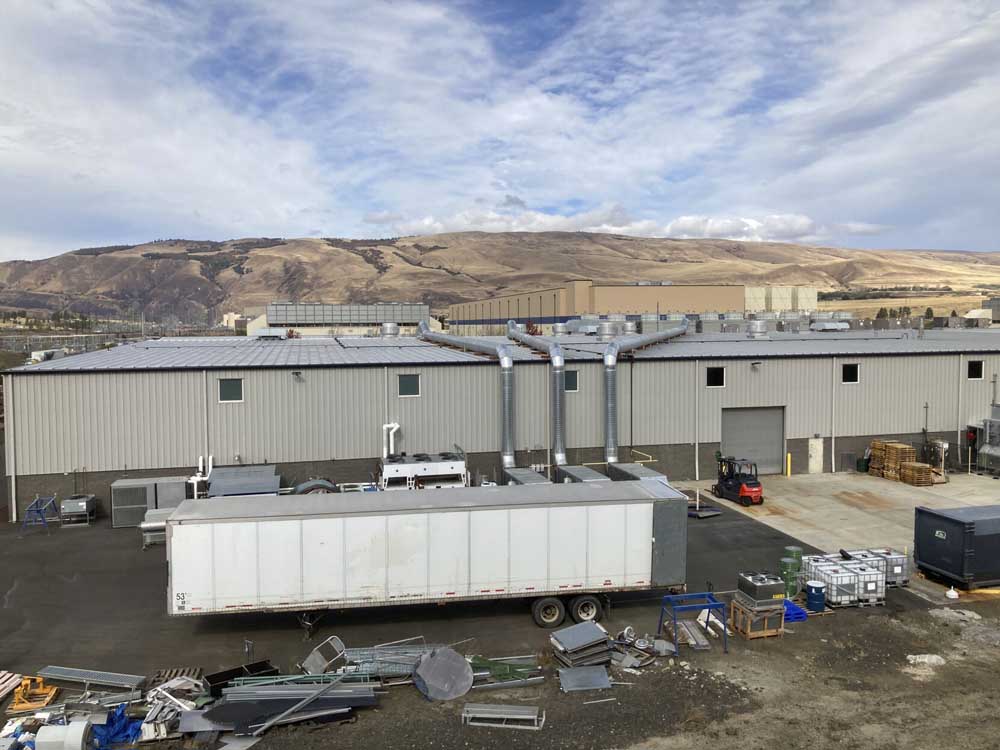Our view: Public can get stung by trade secrets
Published 9:30 pm Thursday, March 17, 2022

- The exterior of a Google data center in The Dalles in October 2021.
The recipe for Oreos. Facebook algorithms. The mix that makes a Black Butte Porter a Black Butte Porter.
Those are all arguably trade secrets. You wouldn’t expect Deschutes Brewery to be forced to make public the precise recipe for its beers.
The problem can be when trade secrets — or what are argued to be trade secrets — intersect with things important to the public. Like water.
In The Dalles, the City Council approved a new deal with Google to allow it to expand its data centers. Data centers are thirsty. And technically, under Oregon law, all water belongs to the public.
Some residents of The Dalles and some journalists wanted to know how much water Google would be using. City officials argued the amount of water the expansion will take is sustainable for its aquifer. But people have different ideas about what is sustainable. And members of the public can’t really judge how good a deal is unless they know how much water the data centers will be drinking.
Google argued that information is a trade secret. The Dalles sued The Oregonian to keep the information secret. And so far, that is the way the issue remains.
The Oregon Sunshine Committee, set up to ensure Oregon’s public records laws are working, has been taking a look at the trade secrets section of public records laws.
Businesses do have trade secrets that deserve to be protected. And government agencies need to contract with businesses. In those contracts, businesses will make assertions that the agreements contain trade secrets. It’s generally in the interest of a company to assert that as much as possible of an agreement is covered by trade secrets. That limits the ability of a competitor or anyone else to gain any advantage by reading the contract.
But government bodies are not typically equipped to decide if what a business is asserting is a trade secret or not. “This could allow for overclassification of potential trade secrets with the public entity stuck in the middle between a record requestor and the potential trade secret holder,” according to a Sunshine Committee document.
State law does make it possible to go to court to overturn an assertion that a so-called trade secret should become public. A public records requestor can argue there is a public interest. But that probably means going to court. How many people would, say, have the resources to take on the city of The Dalles with Google backing it up?
The Sunshine Committee favored advocating that the state make three changes in the law.
1. Businesses would be required to explain to a government entity why something should be considered a trade secret and clearly denote what is a trade secret and what is not.
2. The committee also would like to see the two statutes in Oregon law that discuss trade secrets condensed into one. One statute states that there should be a public interest balancing test when considering if something should be a trade secret. The other does not. The suggestion is the public interest balancing test should apply in the revised statute.
3. Oregon could also revise the statute so that a business with an alleged trade secret — not the public entity — is the appropriate party to respond in any appeals process when a public records requestor is seeking information.
We don’t know if these reform ideas will go anywhere. We can’t imagine businesses will like them. And we are now sure how they will level the playing field so the public has much of a chance when a business asserts something is a trade secret — even when it’s how much of Oregon’s water will be guzzled. up.





